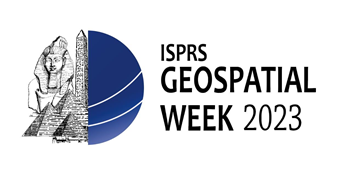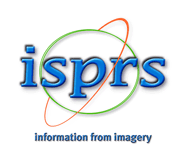GeoHB 2023
GeoHB 2023: Geo-Spatial Computing for Understanding Human Behaviours
Joint workshop with ISPRS WG IV/1 “Spatial Data Representation and Interoperability” and WG IV/3 “Geo-computation and Geo-simulation”
Urban spaces have become complex, being shaped by diverse human behaviours. Therefore, the sustainability of development has faced various challenges ranging from pollution to equity in accessibility to activity spaces and opportunities. Using spatial big data and new computing technologies is an effective way to a better understanding of the interaction between individuals and urban environments, which would be beneficial to tackle urban challenges. This workshop focuses on new advanced technologies on spatial data representation and interoperability, geo-computation and -simulation, and GeoAI, which can harness human behaviour related spatial big data, discovering the mechanisms of the interaction between human behaviours and urban environments.

Themes of event:
- Geo-computation and geo-simulation models for understanding human mobility patterns and underlying mechanisms of the interactions between human behaviours and urban environments
- Computational time geographical methods for modelling and representing human activity-travel behaviour
- Spatio-temporal data mining methods for uncovering human behaviour and its interactions with urban environments
- Knowledge-based geo-computation for reasoning human behaviour contexts
- GeoAI-based technique for sensing urban environments using spatio-temporal big data
- Computational methods for analysing individual and collective behaviour uncertainties within complex systems
- Reliability-based measures for quantifying accessibility under behavioural and environmental uncertainties
- Reliable geo-computation methods for optimizing activity-travel scheduling under uncertainties
- Conceptual models for human behaviour related spatial data representation and associated data such as time series.
- Use case of international standards to foster scalability and reusability of solutions for human mobility big data.
- New solutions for effective and meaningful spatial data integration for human activity pattern study
- Geo-visualization and spatial representation methods of spatio-temporal big data on human mobility
- New developments of strategies and automated computational approaches for handling geo-privacy and ethical issues involved in the analysis of and use of individuals’ spatial data
Scientific Committee:
- Pawel Boguslawski, Wroclaw University of Environmental and Life Sciences, Poland
- Elisabetta Colucci, Politecnico di Torino, Italy
- Chen-Chieh Feng, National University of Singapore, Singapore
- Rui Zhu, Agency for Science, Technology and Research, Singapore
- James Haworth, University College London, UK
- Tao Jia, Wuhan University, China
- Xiao Li, University of Oxford, UK
- Chun Liu, Tongji University, China
- Xintao Liu, The Hong Kong Polytechnic University, China
- Francesca Noardo, Open Geospatial Consortium
- Azarakhsh Rafiee-Voermans, Delft University of Technology, Netherlands
- PWitold Rohm, Wroclaw University of Environmental and Life Sciences, Poland
- Shih-Lung Shaw, University of Tennessee, Knoxville, USA
- Katarzyna Sila-Nowicka, University of Auckland, New Zealand
- Noam Shoval, Hebrew University of Jerusalem, Israel
- Donggen Wang, The Hong Kong Baptist University, China
- Martin Werner, Technical University of Munich, Germany
- René Westerholt, Technical University of Dortmund, Germany
- Hangbin Wu, Tongji University, China
- Marco Minghini, European Commission - Joint Research Centre (JRC), Italy
Supporting ISPRS Working Groups:
- WG IV/1: Spatial data representation and interoperability
- WG IV/3: Geo-computation and geo-simulation
- ICWG IV/III/II: Openness in Geospatial Science and Remote Sensing
- WG IV/6: Human Behaviour and Spatial Interactions
Special Issue for the workshop:
The authors of selected papers in the workshop will be invited to submit an extended full paper to the Transactions in GIS (https://onlinelibrary.wiley.com/journal/14679671; current impact factor: 2.568). The selected papers will go through the peer-review process of the journal.
WG IV/6






